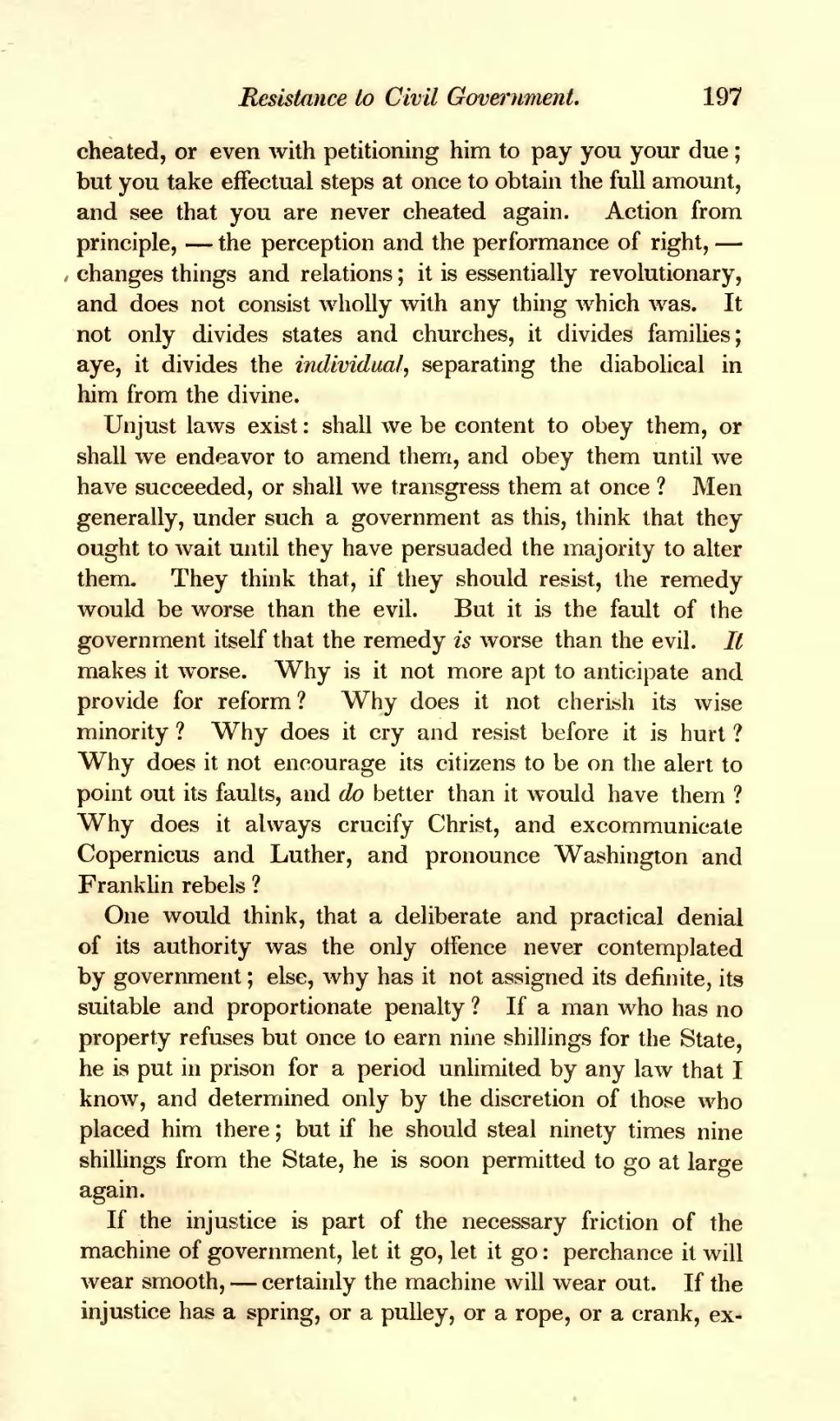cheated, or even with petitioning him to pay you your due; but you take effectual steps at once to obtain the full amount, and see that you are never cheated again. Action from principle,—the perception and the performance of right,—changes things and relations; it is essentially revolutionary, and does not consist wholly with any thing which was. It not only divides states and churches, it divides families; aye, it divides the individual, separating the diabolical in him from the divine.
Unjust laws exist: shall we be content to obey them, or shall we endeavor to amend them, and obey them until we have succeeded, or shall we transgress them at once? Men generally, under such a government as this, think that they ought to wait until they have persuaded the majority to alter them. They think that, if they should resist, the remedy would be worse than the evil. But it is the fault of the government itself that the remedy is worse than the evil. It makes it worse. Why is it not more apt to anticipate and provide for reform? Why does it not cherish its wise minority? Why does it cry and resist before it is hurt? Why does it not encourage its citizens to be on the alert to point out its faults, and do better than it would have them? Why does it always crucify Christ, and excommunicate Copernicus and Luther, and pronounce Washington and Franklin rebels?
One would think, that a deliberate and practical denial of its authority was the only offence never contemplated by government; else, why has it not assigned its definite, its suitable and proportionate penalty? If a man who has no property refuses but once to earn nine shillings for the State, he is put in prison for a period unlimited by any law that I know, and determined only by the discretion of those who placed him there; but if he should steal ninety times nine shillings from the State, he is soon permitted to go at large again.
If the injustice is part of the necessary friction of the machine of government, let it go, let it go: perchance it will wear smooth,—certainly the machine will wear out. If the injustice has a spring, or a pulley, or a rope, or a crank, ex-
